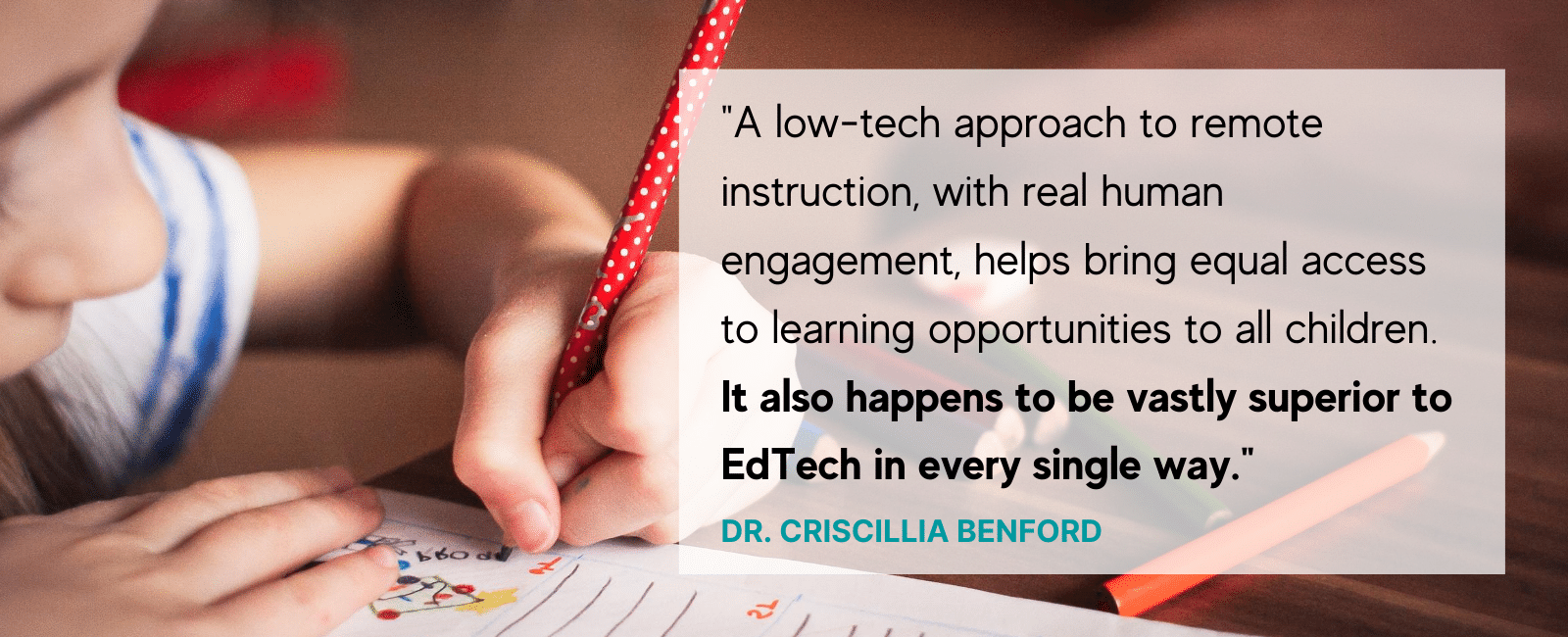
When schools suddenly closed last spring, it was hard: for students getting used to virtual learning, for parents suddenly trying to homeschool their kids, for families who couldn’t access the internet, for educators adapting their lesson plans for video chats. And in the midst of all those challenges, the EdTech industry stepped up its efforts to siphon scarce education dollars by marketing more technology as the catchall solution to the issues created by COVID-19.
Here’s the thing: contrary to the claims of EdTech companies, there is no credible research that shows online, “personalized” learning programs work! In fact, research doesn’t show very much support for EdTech at all. Countries that slowly and intentionally integrate technology into classrooms have better academic outcomes than those that frequently use computers at school. Children between the ages of 8 and 11 who spend more than two hours per day on screens perform worse on memory, language, and thinking tests. And on top of all that, spending all day (and night!) on digital devices undermines children’s physical wellbeing and threatens their privacy.
It’s clear that EdTech simply isn’t the answer to the problems facing our schools, especially now. That’s why this week we released A Statement on EdTech and Education Policy during the Pandemic, calling on educators and policymakers to limit screen time for students in the coming year. Our statement, which was signed by over 100 leading experts in education, child development, and technology calls for educators to ensure that curricula and assignments center on offline, high-engagement components such as hands-on, project- and place-based learning, no matter what school looks like in a given community.
We created the statement to share with policymakers and leaders in education – and to help you advocate for less EdTech in your school district. The first step is for you to raise your voice with ours. Will you join us?
Let’s be clear: we’re not calling for an end to video chats or other online communication tools that allow teachers to maintain critical connections with students. And ensuring that every student has free or low-cost internet and access to a device is essential. But education should be driven by skilled teachers, not algorithms and gamified, data-collecting platforms. And with proper support from their schools, educators can and will design lessons that truly deepen student learning even when class is at home.
We’re at a critical juncture for the future of education. We cannot afford another year in which students become alienated from the learning process. And the decisions and investments school districts make in the coming months will shape educational practices long after the pandemic ends.